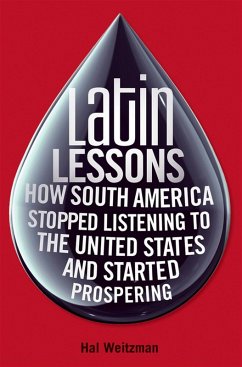The mistakes the United States has made in Latin America-and the high price it will pay for them
Could it be that for the first time in history, the United States needs Latin America more than the other way round? Since the early 1800s, the United States regarded the region as its "backyard," but in the past decade South America's leaders have increasingly snubbed US efforts to persuade them to adopt free-market economics and sign trade agreements. While Washington has been distracted by military campaigns elsewhere, rivals such as China, Russia, and Iran have expanded their clout in Latin America, and US influence in the region has fallen to a historic low-at the very time that the United States has become more dependent than ever on exporting to Latin America and importing its oil. Combining sharp wit and great storytelling with trenchant analysis, Hal Weitzman examines how America "lost the South" and argues that if the United States is to find a new role in a world of emerging superpowers, it must reengage with Latin America.
Could it be that for the first time in history, the United States needs Latin America more than the other way round? Since the early 1800s, the United States regarded the region as its "backyard," but in the past decade South America's leaders have increasingly snubbed US efforts to persuade them to adopt free-market economics and sign trade agreements. While Washington has been distracted by military campaigns elsewhere, rivals such as China, Russia, and Iran have expanded their clout in Latin America, and US influence in the region has fallen to a historic low-at the very time that the United States has become more dependent than ever on exporting to Latin America and importing its oil. Combining sharp wit and great storytelling with trenchant analysis, Hal Weitzman examines how America "lost the South" and argues that if the United States is to find a new role in a world of emerging superpowers, it must reengage with Latin America.
- Charts the rise of resource nationalism-in which governments take increasing control of natural resources and squeeze multinational corporations-in South America and across the world
- Illustrates analytical points with vivid stories-such as the disappearance of the Panama hat or the sweater Evo Morales wore throughout a world tour-and interviews with presidents, policymakers, and protesters
- Written by a Financial Times journalist who formerly served as its Andes correspondent based in Lima, Peru
Dieser Download kann aus rechtlichen Gründen nur mit Rechnungsadresse in A, D ausgeliefert werden.









